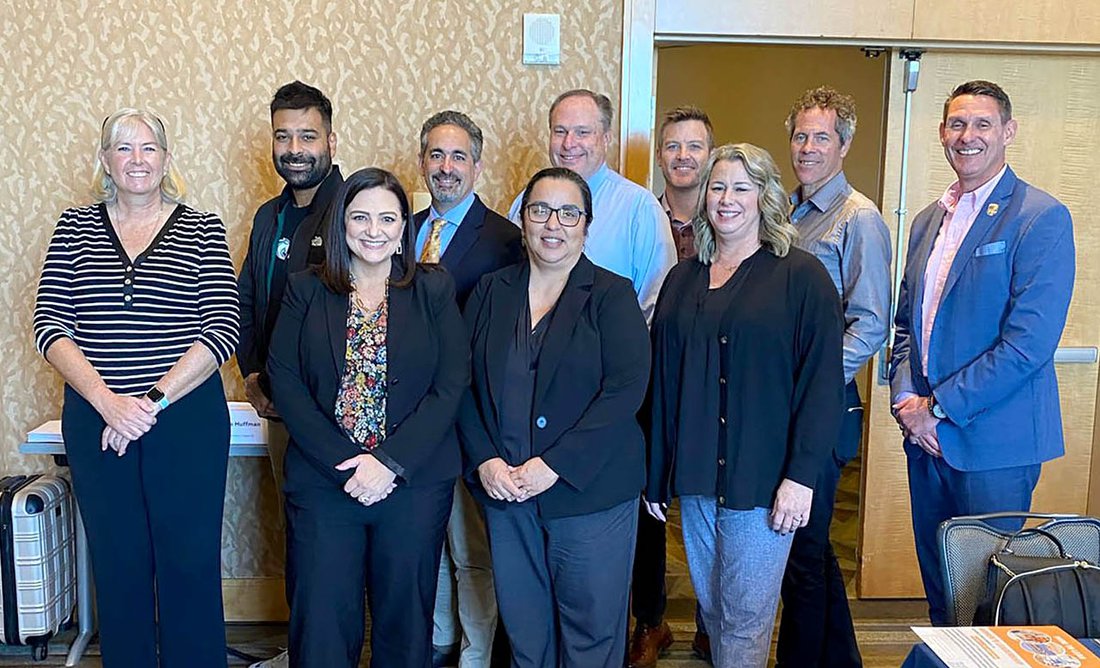
ACSA’s Council of Small School District Leaders, led by Melanie Matta (front row, left) has made it a goal to strengthen leadership and advancing policies that benefit small districts.
Council of Small School District Leaders: Goals and Initiatives
February 3, 2025
ACSA’s Council of Small School District Leaders is committed to addressing the unique challenges faced by small school districts through targeted member development and strategic advocacy. Below are the council’s key goals and actionable plans aimed at strengthening leadership and advancing policies that benefit small districts.
Goal 1: Member Development and Support
To equip leaders of small school districts with the tools and knowledge needed to succeed, the council prioritizes professional learning tailored to their specific needs. Current efforts include hosting sessions at prominent ACSA events like the Leadership Summit and the Superintendent’s Symposium, focusing on topics such as multi-role leadership, managing declining enrollment and addressing facilities concerns.
Looking ahead, the council envisions creating an annual Small Schools Leadership Conference if there is sufficient interest. This conference would tackle pressing topics like data-driven decision-making, balancing instructional and operational responsibilities and optimizing limited resources. Other proposed areas include fostering community engagement, building leadership capacity, innovative staffing solutions, branding, and developing career and technical education (CTE) pathways tailored to small districts.
“These initiatives aim to provide leaders with actionable strategies to navigate the complexities of leading small districts effectively,” said Melanie Matta, council president and superintendent of Hope ESD.
Goal 2: Advocacy and Influence
Recognizing the unique policy challenges small districts face, the council actively advocates for equitable funding formulas and legislation that address critical issues like high transportation costs and teacher recruitment.
To further strengthen advocacy efforts, the council proposes developing a Small Schools Policy Agenda that outlines key priorities such as flexible funding models to accommodate enrollment variability, enhanced transportation funding and accessible grant opportunities. This agenda would also emphasize support for multi-role administrators and workforce development to address staffing shortages.
A proposed highlight of these efforts is an annual “Small Schools Advocacy Day,” where members would meet with legislators to directly communicate their needs and advocate for supportive policies.
“Through these targeted initiatives, the Council of Small School District Leaders aims to empower leaders, amplify their voices, and drive meaningful change for small school districts across the state,” Matta said.




